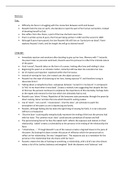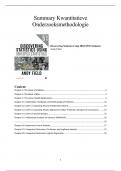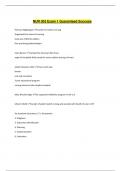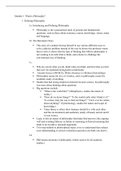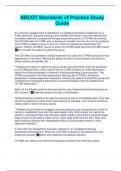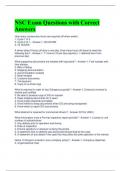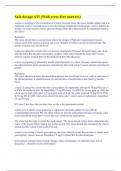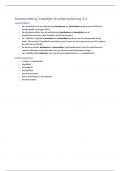Other
Exam Notes: 'Memory' by Christina Rossetti
- Course
- Institution
This document covers the poem: 'Memory' by Christina Rossetti. I studied this poem for my A Level, Edexcel English Literature Exam as part of the poetry module. By constructing these summarises and notes these provided me with ideas and themes which I could for my essays and thesis. It was this...
[Show more]
